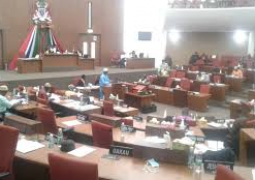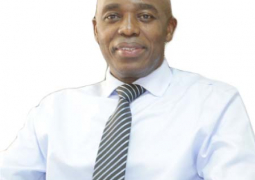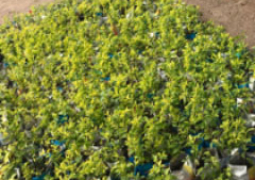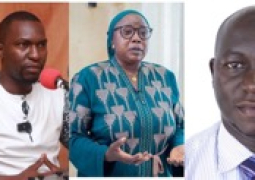
Sillah tells journalists “Your integrity is critical and important and your credibility is also crucial and important. Therefore, what you give to the communities should be seen not only to be credible but to be fair and balanced as well. The recent past few weeks, we have seen some very disturbing trends in the country where some people will just manufacture their own stories and publish them in our newspapers and insist that they are credible when in actual fact we later found that they are manufactured stories.”
He was speaking on Saturday during a day-long CSO Coordinating Meeting on Access to Information: Improving Transparency and Accountability in Electoral Process in Africa. The convergence was organised by The Gambia Press Union (GPU) with funding from the National Endowment for Democracy.
Information Minister Sillah added “Let me assure you that what we have started in 2017 that’s access to information processes will still continue. We know and believe firmly that democracy can’t be enriched without access to information. Governance in itself will be extremely difficult when citizens lack the crucial information necessary for them to make informed choices.”
The integrity of the media, he went on, is critical and that journalists at all times should be abate not in a manner that would reflect on their integrity. “Therefore, I call on journalists particularly those that are selected to be reporting crucially on elections in The Gambia to be fair, to be critical but also to be mindful that above all, their work is also under microscope not by the electoral body alone but by the citizenry.”
“In our work, difficult as it is, we should try by all means to move away from partisan choices, to move away from individual attachment, and to move away from any other consideration that is not guided by our cardinal principle in journalism. I hope that we will continue to work together to improve this profession to a high standard.”
“We are proud of the wonderful work the GPU is doing together with its partners in enhancing professionalism but also ensuring fairness and credibility in our work. I want to assure that the government of The Gambia is committed to providing the enabling environment for the media to operate freely but also responsibly so that together information on election and election related matters can be widely available to the people of this country who will be the final deciders in our election for people to make informed choices.”
“We also enjoin on the media partners to ensure that this Smiling Coast of the Africa is maintained so that even after the elections we can all be proud of the good work that we have done and for us to enter in the election peacefully, do the election peacefully and we come out of the election peacefully and we live in our country peacefully.”
Salama Njie, national coordinator for WANEP added “Information empowers the electorate to be well- informed about political processes with due regard to their best interests in order to elect political office holders; to participate in decision-making processes on the implementation of laws and policies; and to hold public officials accountable for their acts or omissions in the execution of their duties.”
Access to information, she maintained, is a foundational requirement of the practice of democratic governance. “It has been rightly stated that: ‘No democratic government can survive without accountability and the basic postulate of accountability is that people should have information about the functioning of government.”
“It is the responsibility of state parties to create an atmosphere that fosters access to information and to ensure ‘adequate disclosure and dissemination of information’ in a manner that offers ‘the necessary facilities and eliminates existing obstacles to its attainment.”





